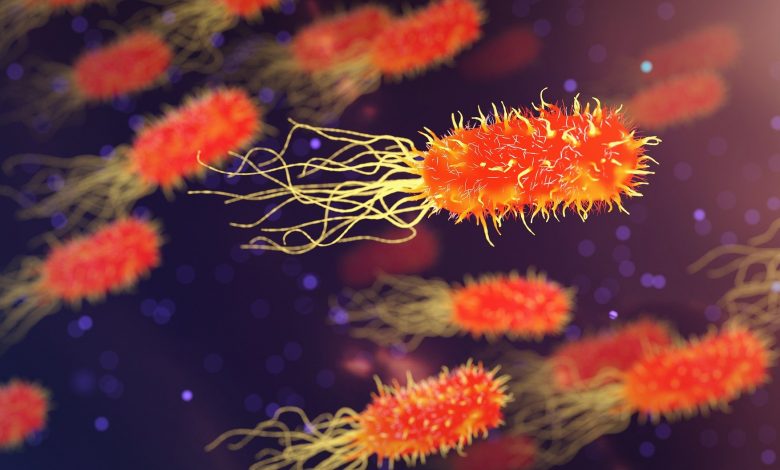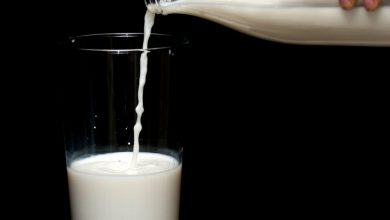
Know your Gut Bacteria: What They Are & How They Will Help With Weight Loss
Weight loss is one of the most complicated and obscure, yet one of the most researched and discussed matters. And why not? People relate their weight not only to how they look and feel, but also to their overall well-being. Food and exercise are often attributed to weight loss. They do affect your health and fitness, but there is something much more crucial that plays the lion’s share of role in helping maintain not only your weight but also your overall mood. Meet the bacteria residing in your gut microbiome.
Our body has over trillions of bacteria. Over 1000 different species of bacteria inhabit the gut microbiota. They go on living their lives, as usual, feeding on the fiber you send them through the food you eat and doing their job of helping you digest this food. Bacteria lie at the very core of your digestive health. And you have them in trillions. By knowing how they affect your digestive system and overall gut health and how they relate to weight loss, you can make a positive change to your weight loss regime.
Did you know?
There are more bacterial cells in the human body than human cells. An average adult weighing 154 pounds will have 40 trillion bacterial cells in their body and only 30 trillion human cells.
Gut bacteria are majorly found in the section of the large intestine known as the cecum. Although the term bacteria is generally associated with diseases, most of these bacteria living in the gut are good bacteria that are tasked with breaking down different nutrients and helping the body soak in the required nutrients. For example, some of these gut bacteria produce menaquinones (vitamin K2), which plays a major role in metabolizing calcium.
Similarly, these bacteria assist in breaking down certain foods that produce certain chemicals that in turn help in reducing hunger and cravings, helping you lose weight.
To understand how this happens, we are going to learn more about gut bacteria, their role in our body, and how they affect weight loss. Additionally, we are going to share ways through which you can keep your gut bacteria healthy, how you can use your gut bacteria to lose weight, and the best foods to feed your gut bacteria.

Role of Gut Bacteria
The effect gut bacteria have on our daily lives was not known for a long time. However, given the studies and research that are being conducted to increase the understanding of the same, it has shed a lot of light into what all gut bacteria do for the human body. Gut bacteria does not help you digest your food, but it also plays an active role in preventing and reducing inflammation and producing chemicals in the body. These chemicals help keep your hormones balanced and also help stabilize your mood, making you feel happy.
It suffices to say that a good digestive system is crucial in maintaining weight and losing the excess. How that happens can be learned by looking into the functions of gut bacteria, in further detail.
Helping Digest Food
Most of the gut bacteria are found in the cecum, which is a part of the long intestine. However, they can also be found lining the length of the small intestine. Therefore, whenever the food you ingest passes through the intestine, they come in contact with these bacteria. The bacteria then break down the food and are largely responsible for deciding how much and what nutrients are absorbed and how the energy derived from them is stored.
Studies have found that the bacteria found in the gut of obese people is significantly different from that of lean people. The study stated that the gut microbiota in obese people was much less diverse than that of lean people. It then derived that bacterial diversity is one of the major deciding factors when it came to obesity. The more diverse the bacterial microbiota, the higher the chances of a person being slim and lean. The opposite held for people who are obese.
One of the reasons why diversity is crucial in gut microbiota and subsequent weight-related matters is because of how different bacteria help digest different food. Fiber, for example, is a food group that humans cannot digest. However, bacteria feed on fiber, and in the process, create chemicals that relate to the feeling of fullness and lesser appetite, hence lower weight gain. So to lose weight, you will need more of the bacteria that feed on fiber and create these particular chemicals in your body.
Prevotella and Bacteriodetes, both gram-negative bacteria, are responsible for breaking down indigestible carbohydrates and polysaccharides to produce SCFA (short-chain fatty acids). SCFAs are known to have multiple beneficial effects on the gut microbiota. So, if you are planning to lose weight by altering your food intake, it would be good to ingest food that will positively affect your gut microbiota. This will help ensure your weight loss results are more long term and certainly healthier.

Assisting Weight Loss
One of the major causes of weight gain is binging frequently on food rich in carbs and sugar. Gut bacteria are responsible for helping produce hormones that induce the feeling of being full, thus curbing eating between meals. Some of these appetite-reducing hormones include peptide YY (PYY), ghrelin, and leptin. However, frequent binging on processed foods with added sugars can end up decreasing the number of good bacteria in your gut.
Gut bacteria break down fiber and release certain short-chain fatty acids, as mentioned earlier. One of these SCFA, propionate, is responsible for reducing food cravings and hunger. In one study, a focus group of 60 overweight adults was given propionate for 24 weeks. Their results showed an increase in the levels of hormones GLP-1 and PYY. The participants who took propionate also showed signs of reduced food intake and lesser weight gain. Butyrate is yet another SCFA, which not only lessens inflammation, but also makes you feel full, quicker.
Prebiotics are considered essential for a thriving and diverse microbiota. Prebiotic supplements contain certain compounds that are fermented by gut bacteria, the result of which is reduced appetite and lesser food intake.
Reducing Inflammation
Inflammation is a result of the body’s immune system fighting an infection. However, it is not just an infection that leads to inflammation in the body. Your gut bacteria might also play a role in inducing inflammation.
When you eat too much processed food rich in fats and sugar, the gut microbiota starts breaking these foods down and releasing a chemical called lipopolysaccharide (LPS) into the bloodstream. LPS is known to cause inflammation once it is introduced into the bloodstream.
LPS also harm weight gain. Increased levels of LPS in the blood have shown increased weight gain and higher levels of insulin sensitivity in study subjects. Low-grade inflammation can cause weight gain and subsequent obesity. This mostly occurs due to reduced fat export and increased fat storage.
Some bacteria in the gut microbiota also help in reducing inflammation. Two of the known ones include bifidobacteria and akkermansia. These two types of bacteria help keep inflammation at bay by creating a protective gut barrier that stops the inflammatory chemicals, like LPS, from seeping into the bloodstream.
Ways to Keep Your Gut Bacteria Healthy
Now that you know how important gut bacteria is to your overall digestive health and weight loss efforts, it’s time to learn about ways to keep your gut microbiota healthy. A healthy gut microbiota, full of good bacteria can do a world of good to you and get you started on the weight loss mission you’ve been planning for a long time now. Here’s how you do can do it.
Add More Fiber to Your Diet
This is the most important step you can take to build a healthy gut microbiota. The bacteria in your stomach feed on the fiber (indigestible carbohydrates) and are nourished by it. The more fiber they feed on, the more diverse your gut microbiota will be. A diverse microbiome helps in cultivating all kinds of bacteria that have a beneficial effect on your weight loss efforts, be it producing hormones that reduce appetite, or ones that produce a healthy gut barrier to stop inflammation-causing chemicals from seeping into the bloodstream. Introduce lots of fruits, vegetables, and whole grains into your diet. Aim for about 20-30 grams of fiber every day. Foods rich in prebiotics should be your go-to food. Included among them are onions, garlic, Jerusalem artichokes, leeks, apples, and bananas. These foods can be easily procured and integrated into your daily diet.
Include probiotic foods in your diet
While prebiotic creates the perfect environment for your gut bacteria to flourish and nourish themselves, probiotics are live microorganisms that help in restoring gut flora. You can add probiotics to your diet by adding more fermented foods, too. Food such as yogurt, miso, kefir, and sauerkraut are some examples of probiotics. Studies have shown that eating yogurt daily can help lose weight.
Eat ‘Gut Bacteria-Friendly’ Snacks
Every time you snack on something sweet and processed when you are hungry, you might be starving your gut bacteria, which might die in the process. When they don’t die, they try to keep themselves alive by feeding on the mucous lining of your intestinal walls. This could lead to certain low-level inflammations and obesity in the long run. Gut bacteria derive their nourishment from complex carbohydrates and indigestible fibers. Adding more legume and whole grains to your diet can help to keep them full and thriving. Try to reach for some unsalted almonds or a banana, instead of a packet of chips or a cookie, next time you feel like snacking.
Get Some Good Sleep
Sleep deprivation and sleep fragmentation (waking up now and then) can hamper your gut bacteria substantially. Even as little as two days of sleep deprivation can lead to changes in your gut microbiota, which might start reflecting metabolic and gut problems, such as more fat tissue, greater inflammation in the fat tissue, low insulin sensitivity, and breaches in gut barriers which can cause inflammation producing chemicals to seep into the bloodstream. Low-level inflammations have often been linked to obesity, and sleep deprivation, too, can lead to obesity in the long term. Make sure you get a good seven to eight hours of sleep every night. Even if you do sleep only six to seven hours, ensure you sleep undisturbed. Your gut bacteria will thank you for the same.

How Gut Bacteria Affect Weight Loss
Gut bacteria play an important role in ensuring the proper functioning of your cardiovascular, digestive, and immune systems. However, your gut microbiota could also be deciding if you are going to lose weight or gain some more. These little microorganisms interact with the food you eat to break them down and produce chemicals, which either help you lose weight or make you gain more.
The gut microbiome is different for different people. The composition of bacteria in your gut might not be the same as that of another person. This is why we often come across people who might eat a lot yet never gain enough pounds, as compared to other people who are trying to cut their pounds yet seem to keep adding more despite being on a low-calorie diet. It is the bacteria in their gut that is causing this phenomenon. Obese people have a certain strain of bacteria in their gut which makes weight loss difficult.
Researchers have found around 19 metabolites that are derived from 4 types of bacteria which could well be linked to weight gain, obesity, and branched-chain amino acids (BCAAs) that are related to cardiovascular disease and type 2 diabetes.
So the presence of certain types of gut bacteria could be hindering your efforts of weight loss. While the inherent composition gut bacteria cannot be changed overnight, diversity in the gut microbiome does help in assisting weight loss. The diverse gut microbiome has been linked to lower levels of insulin resistance, lesser inflammation markers in the bloodstream, and lower blood lipids.
While the reason why some people have a more diverse microbiome is still not known, scientists mention that the use of antibiotics can lead to loss of bacteria which could go beyond recovery. You can always try and enrich your gut microbiota by adding more fiber and probiotics to your diet. Gut bacteria, as mentioned earlier, feed on fibers to thrive. Bacteria in the gut break down fibers to release SCFAs such as butyrate which is related to lower inflammatory diseases and also adds to weight loss and subsequent leanness.
Christensenellaceae is a kind of bacteria that seems to prove some hypothesis around gut health and weight. These bacteria are found in most people, even in the guts of babies, but are found in higher numbers in the guts of lean people.
Clostridia is yet another strain of bacteria that is known to prevent weight gain. When some mice were tested for these bacteria, it was found that healthy mice had enough clostridia in their gut microbiome. However, the ones with an impaired immune system showed lesser numbers of slostridia in their gut microbiome, as they aged. Even when these mice were fed with a healthy diet, they continued to gain weight. This showed the inverse relationship between the presence of clostridia and weight gain. Clostridia helps in preventing weight gain by inhibiting the intestines from absorbing fat.

Best Foods for Gut Bacteria
Eating the right food can help your gut microbiota thrive and flourish. Losing weight is not all about removing foods that hinder weight gains, such as sugary foods, foods with unhealthy fats, and artificial sweeteners. It is also about incorporating the food groups that help the bacteria in your gut process and extract the chemicals required to keep you lean and fit.
- Whole grains are high in fiber and are processed by the Bifidobacteria that aids weight loss.
- Fruits and vegetables contain various different fibers and are also good to improve diversity in the gut microbiota.
- Fermented foods like yogurt, sauerkraut, kefir, and kombucha contain bacteria called lactobacilli which are known to keep a check on disease-causing bacteria in the intestines.
- Polyphenol-rich foods such as dark chocolate, green tea, and red wine help in the growth of good bacteria.
- Probiotics are essential when the body is recovering from a disease or after a course of antibiotics which may have depleted some of the good bacteria too, along with the disease-causing ones. Probiotics are also known to aid weight loss, by adding more good bacteria to the gut microbiota, which helps in reducing inflammation and fat absorption.
Gut health is incredibly important to lead an overall healthy life. They help in the upkeep of your cardiovascular, immune, and digestive systems. You can ensure good gut health and that the right kind of bacteria dwell in your gut’s microbiome by eating the right foods. The right food in the diet comprises healthy fibers that consist of indigestible carbohydrates and polysaccharides. These help the bacteria thrive and nourish themselves. Processed food with high sugar content might lead bacteria to starve and start feeding on intestinal walls, which might lead to low-level inflammation. This is often linked to obesity, as well. Eating fiber-rich food, along with prebiotic-rich food and probiotic supplements can help ensure a healthy gut microbiota and not only help you lose those extra pounds, but hinder further weight gain, as well.



